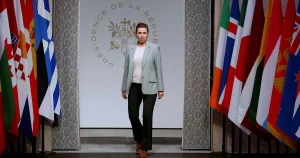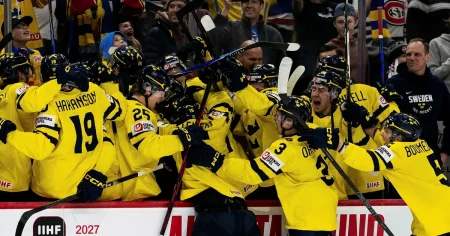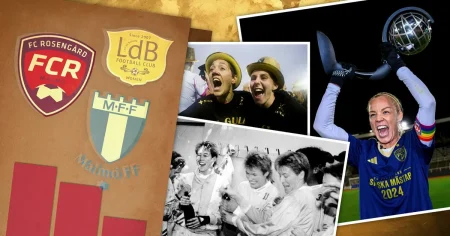Barcelona’s Financial Fair Play Predicament: A Deep Dive into the Dani Olmo Saga
FC Barcelona’s ongoing financial struggles have once again taken center stage, this time casting a shadow over the registration of their talented midfielder, Dani Olmo. Olmo’s arrival from RB Leipzig was met with initial excitement, but the club’s precarious financial position meant he was only registered to play until the mid-season break. The crux of the issue lies in La Liga’s stringent "financial fair play" (FFP) regulations, designed to ensure clubs operate within sustainable financial parameters. These regulations stipulate that clubs must demonstrate financial stability and control over their spending, including player wages and transfer fees. Barcelona, grappling with a substantial debt burden and limitations on their spending power, found themselves in a race against time to meet these financial prerequisites before the registration deadline expired. Unfortunately, despite their efforts, they fell short, leaving Olmo in a state of limbo.
The inability to register Olmo for the remainder of the season has ignited a fierce debate surrounding La Liga’s FFP rules and their implementation. Barcelona’s argument centers on the perceived inflexibility of the regulations, claiming that despite eventually securing the necessary funds to comply with FFP, they are still barred from re-registering Olmo. The club contends that the rules should allow for some flexibility in situations where a club, like Barcelona, demonstrates a commitment to rectifying their financial situation and securing the necessary resources to meet the requirements, albeit after the initial deadline. This inflexibility, they argue, unfairly penalizes players and clubs, hindering their ability to compete effectively and develop talent. Olmo’s situation serves as a prime example of this perceived injustice, with a promising player’s career trajectory potentially hampered by bureaucratic hurdles.
La Liga, on the other hand, maintains that the rules are clear and consistently applied to all clubs. Their stance is that the regulations are designed to promote financial responsibility and sustainability within the league, ensuring a level playing field and preventing clubs from overspending and jeopardizing their long-term financial health. The league argues that allowing exceptions or bending the rules for individual cases would undermine the integrity of the system and create an uneven playing field. Furthermore, they contend that the deadlines are in place to maintain order and fairness, allowing clubs ample time to plan and manage their finances effectively. Granting extensions or making exceptions would disrupt the established framework and create an environment of uncertainty and potential manipulation.
The heart of the dispute revolves around the interpretation and application of the FFP regulations. Barcelona believes that a more nuanced approach is needed, one that acknowledges extenuating circumstances and allows for flexibility when clubs demonstrate a genuine commitment to financial stability. They argue that the current system is overly rigid and penalizes clubs that are actively working towards compliance. La Liga, however, emphasizes the importance of consistent and impartial application of the rules, maintaining that exceptions would compromise the integrity of the system and create unfair advantages.
The standoff between Barcelona and La Liga highlights the inherent tension between financial regulations and sporting ambitions. FFP rules are designed to promote financial prudence and prevent unsustainable spending, but they can also create unintended consequences, such as preventing talented players from participating and hindering a club’s ability to compete effectively. The challenge lies in finding a balance between ensuring financial stability and allowing clubs the flexibility to manage their squads and pursue their sporting objectives. This delicate balancing act requires open communication, collaboration, and a willingness to adapt the rules to address evolving circumstances.
As the dispute escalates, Barcelona is prepared to take the matter to the Spanish National Sports Tribunal, seeking a legal resolution to the impasse. The tribunal’s decision will have significant ramifications, not only for Barcelona and Olmo but also for the broader landscape of Spanish football and the interpretation of FFP regulations. The outcome could potentially set a precedent for future cases and influence the way La Liga applies its financial rules. The legal battle promises to be a complex and protracted affair, with both sides presenting their arguments and interpretations of the regulations. The ultimate decision will shape the future of FFP in Spain and determine whether a more flexible approach is adopted or the current rigid framework remains in place.














